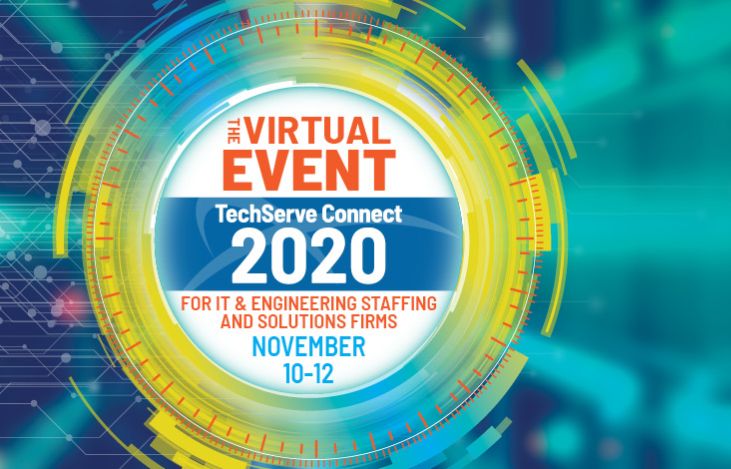The TechServe Connect 2020 virtual event came to a close with final thoughts from TechServe Alliance CEO Mark Roberts on the future of the industry as the world continues to navigate these unprecedented times.
Looking ahead, the areas to consider include increases in efficiency, automation, diversification and investment in technology.
But Roberts assured that the best strategy is to be ready, relevant and responsive.
“We are well positioned for the future as an industry,” he said. “After every downturn, we always come out stronger than ever and we are confident that demand will return. TechServe is here to help no matter what challenges lie ahead.”
For the closing conversation, Roberts was also joined by Signature Consultants CEO and Founder Jay Cohen, Belcan Vice President Scott Aicher, Dale Workforce Solutions Founder and President Sarah Martin, and Tom Nunn Consulting Founder and President Tom Nunn. Each offered words of advice and encouragement for future success.
“Mankind has been through a number of ages and now we’re living in the digital age,” Cohen said. “The reality is until there truly is a machine take over, things are still going to be programmed by people and we’re going to have to find them.”
As a direct result of COVID-19, firms should reevaluate how to tighten their processes, increase their efficiency and leverage tech, Aicher stated.
Martin added: “Being agile is going to be extremely important and also a reliance on tech. It’s going to be amazing for tech to help smaller companies function like bigger companies.”
But all speakers agreed that the industry is still first and foremost about people.
“Technology may be changing, but people aren’t,” Cohen said. “This is still a people business.”
Aicher also explained that people still buy from people they like because they feel there is value in that relationship.
For Nunn, leading in a people business means getting better at making good hiring decisions, getting better at inspiring people to thrive, and getting better at being decisive.
“I’ll always say that culture is one of cornerstones of any organization,” Nunn said. I would also focus on a culture that is reasonable, competitive and inspiring for people to come and stay. I’d also say to get involved in networking, get to know people that you compete with, and get to know others so you can share ideas.”
In regards to culture, Cohen thinks that the value of discipline should not be underplayed.
“People think discipline and culture are antithetical to each other, but I think you should build that into your culture,” he said. “We all benefit from having focus. Show them the fruits they can grow instead of what will just grow our business.”
Finally, when looking towards the future, Martin believes that tracking one’s progress also holds great importance.
“Have a roadmap,” she said. “Think about where you are today and where want to be. Look at one year then dice it down to quarters and the activities you have to do each quarter then track and understand where you need to be to reach those goals.”












